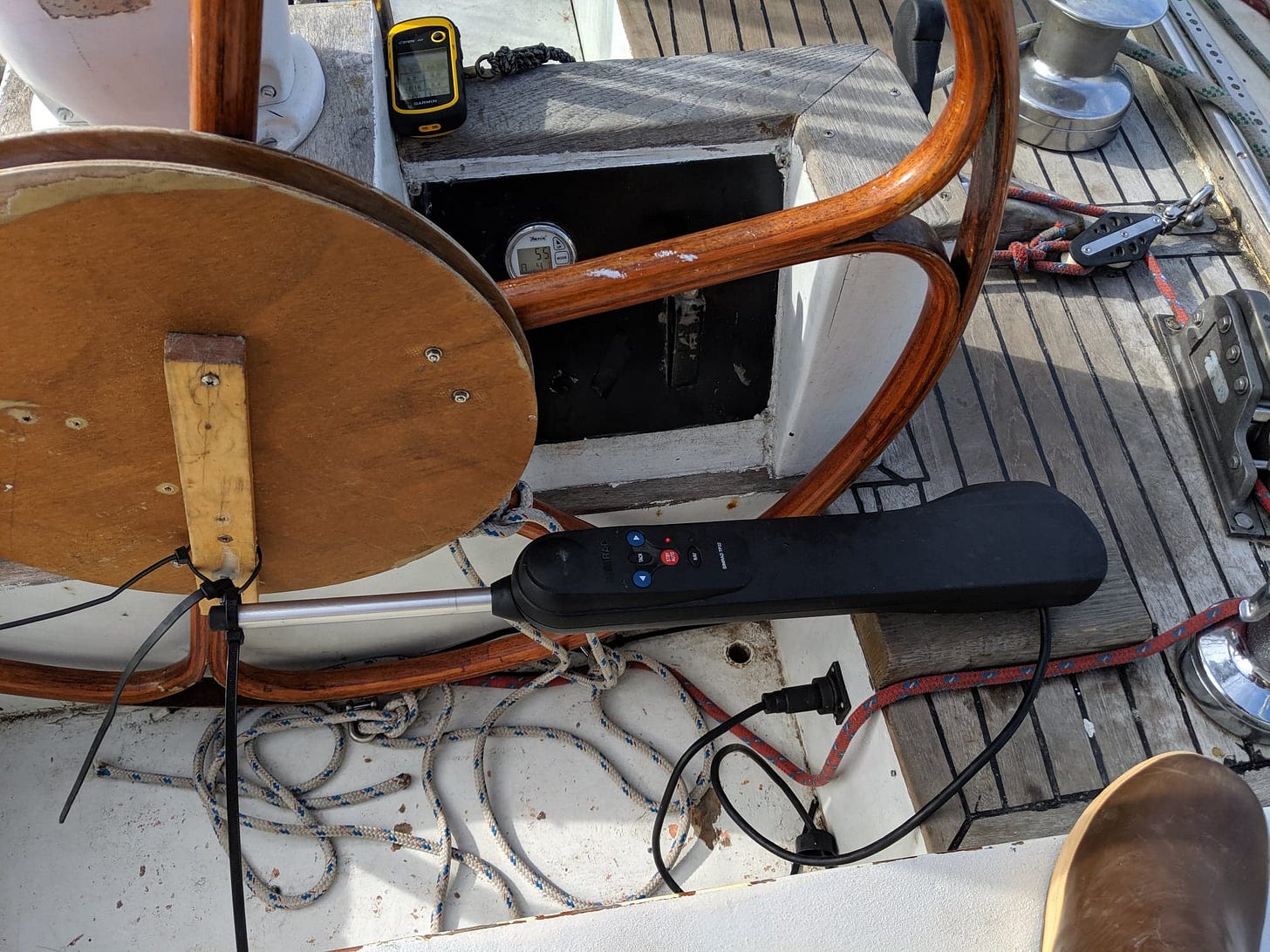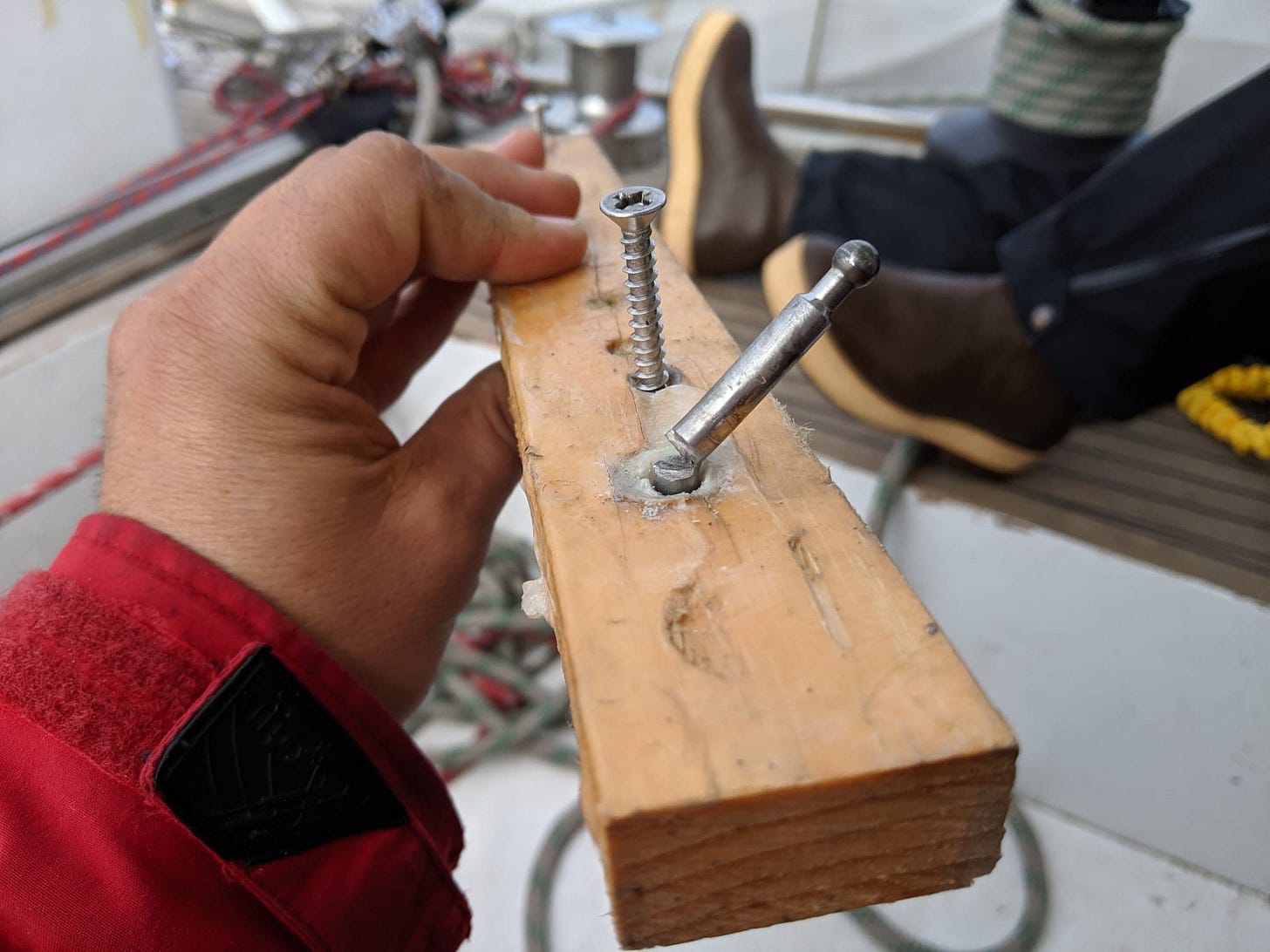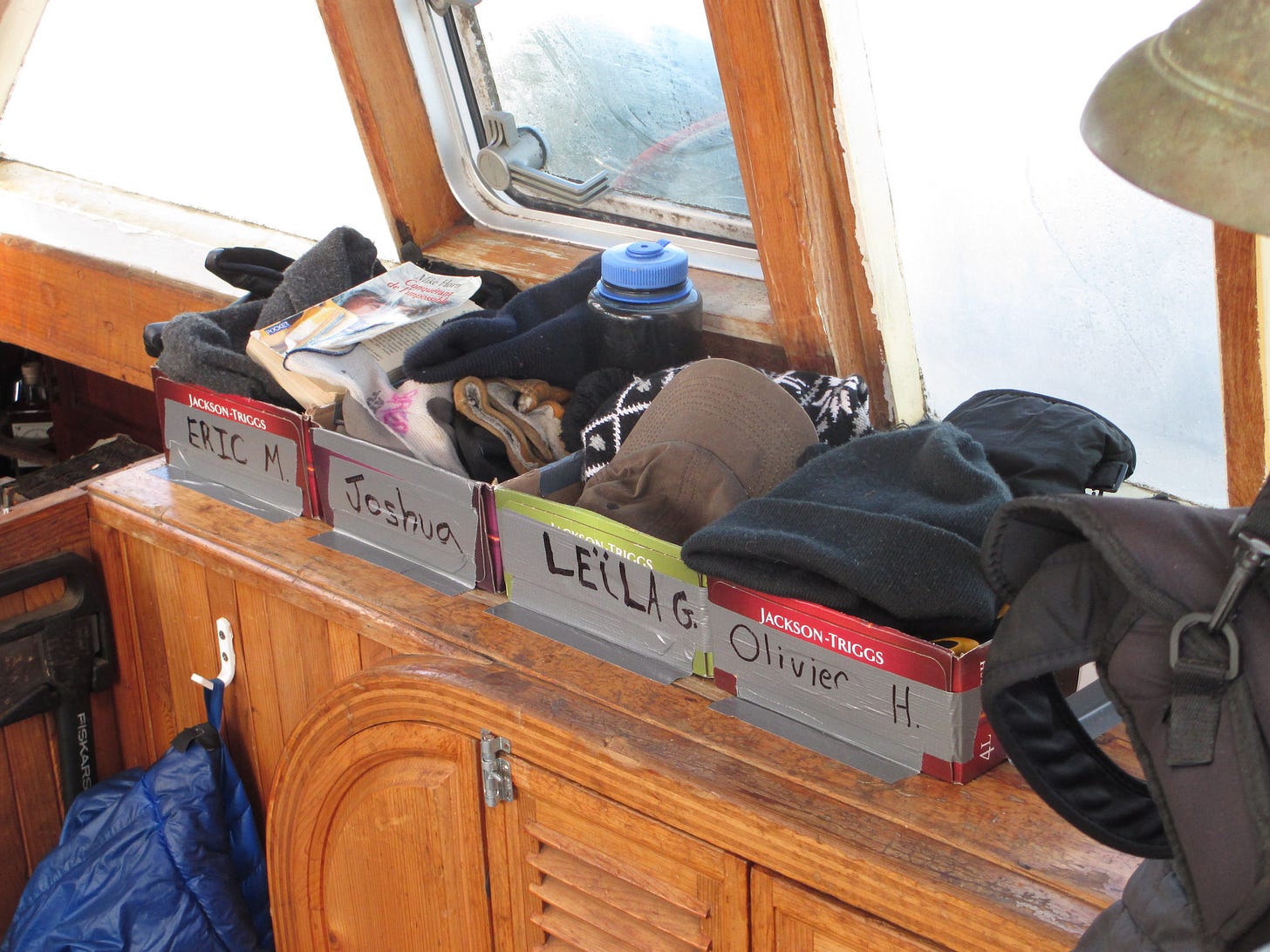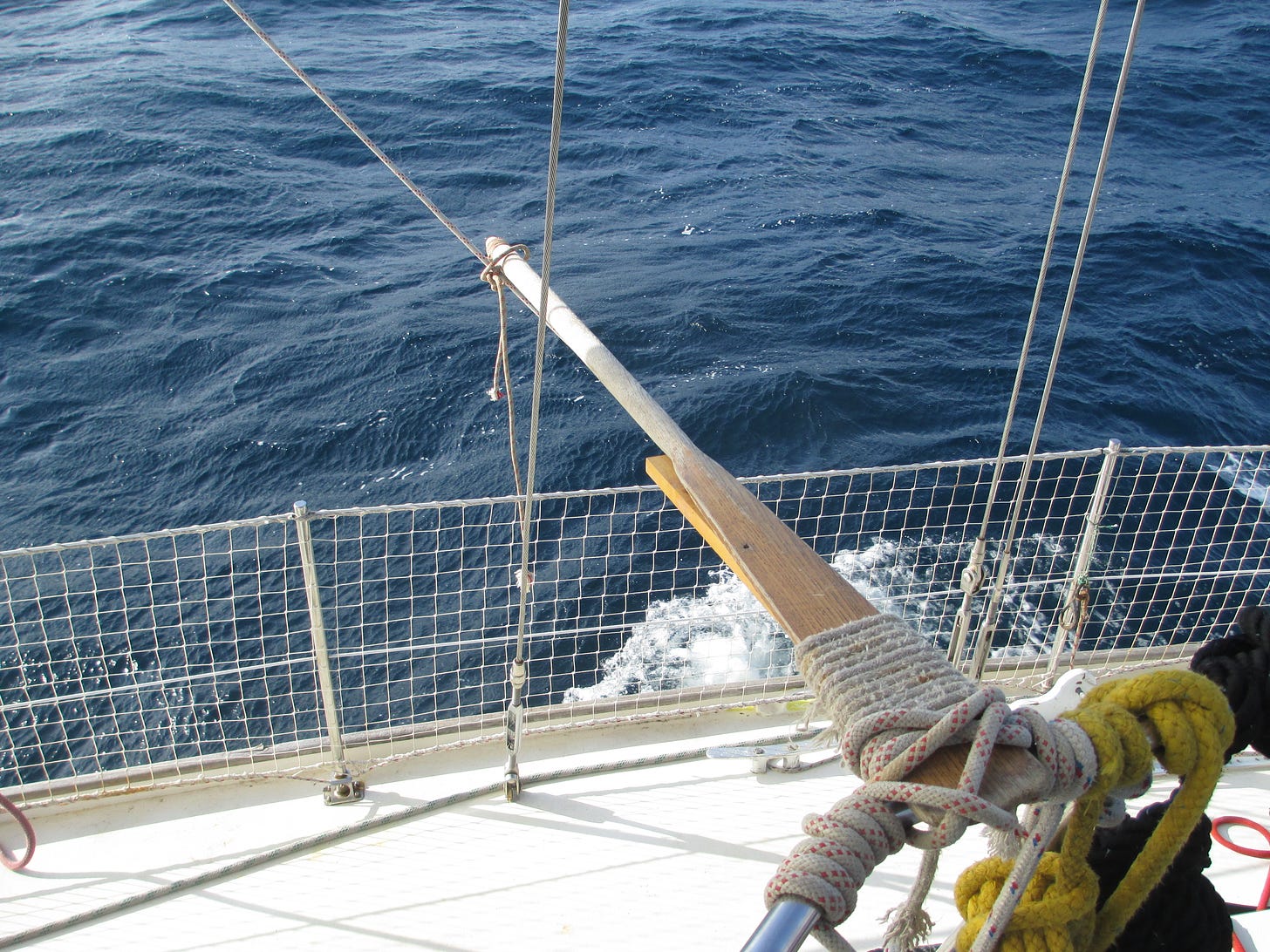Tales from the Northwest Passage: The Resourceful Sailor and Arctic Bricolage, Part One
Article by Joshua Wheeler
I had spent the summer transiting the Northwest Passage, crewing on the 51′ yellow wooden sailboat named Breskell. “C’est du bricolage,” Olivier Huin, Breskell’s builder and captain, used the term to describe his makeshift creation of a staysail pole. Bricolage (brē-kō-ˈläzh), as defined by the Miriam-Webster dictionary, is the “construction achieved by using whatever comes to hand” and is French in origin. Being on a French boat was a French way of saying jury-rigged, jerry-built, or do-it-yourself. I loved it. I also recognized it as a common theme aboard Breskell. Allow me to elaborate.
On the last leg of our journey, Breskell was sailing across the Northern Pacific from the Aleutians to Washington State. When I awoke for my watch, she was running downwind with a poled-out genoa and staysail. But I knew she only had one pole. Olivier had improvised another from a dinghy oar, using scrap lumber and extra line. The blade end, with the addition of the lumber, was lashed to the mast pulpit. The lumber created a notch the metal bar could nest in. The opposite end captured the staysail sheet in a bowline, also lashed on, holding out the sail just enough to keep it filled. We successfully sailed with this double pole set-up from the morning to the late afternoon when the wind changed direction. The pole served its short-lived purpose well and was a clever use of marlinspike.
Breskell’s electronic autopilot was not sorted out until after we had left Newfoundland, where we started the expedition. We had a TP32 tiller pilot but wheel steering. To adapt the instrument to the helm, we epoxied the tiller pin into a piece of light lumber and C-clamped this to the wheel. Later, in Greenland, we upgraded from the clamps by properly screwing it to the wheel. Due to the horizontal orientation of the tiller pin (intended to be vertical), we added a zip tie to keep the piston from popping off. The autopilot was impressive throughout the summer, steering through choppy seas and confused swells. It was the workhorse of the helm. Maintenance issues came up when the forces sheared off a screw and, later, the tiller pin. The screw was easy to replace, and there was still enough of the pin to re-epoxy back into the lumber.
As the crew headed to and from the cockpit, we quickly learned the shelf by the companionway was a natural go-to for hats, gloves, books, water bottles, and the like. We also learned that with the heeling and rolling, nothing was safe there. Gear would slide off, usually when we were asleep. A groggy-eyed search would ensue for “that second glove” before going on deck. A simple solution proposed by crew member Eric worked like a charm, though it required some wine-drinking from Breskell’s crew. Since we were laid over in Greenland for a week, waiting for the ice to clear, we enlisted newfound friends to help. Repurposed wine boxes and duct tape made for useful personalized bins. Eric, as it turned out, was seasoned at wine box repurposing with holdovers from a previous expedition amongst the boat’s drawers. Modifications were simple. We fixed improperly spelled names and moved my box to the end, away from the hatch.
When you are away from port or in places where supplies and options are limited, improvisation is the order of the day. A bit of bricolage is bound to enter your “deal with it” repertoire. Given enough time, even the most prepared sailors will succumb. Space, time, economic constraints, unforeseen circumstances, poor planning, or a seat-of-the-pants style will often inspire or demand it. Bricolage won’t win you any “Best in Show” awards, but it may help get you from one ocean to another. The Resourceful Sailor hopes to shed light on the various ways to “make things work.” Remember, keep your solutions prudent and safe, and have a blast. •SCA•
This installment of The Resourceful Sailor first appeared on ‘Lectronic Latitude on Jan. 8, 2020.








"Bricolage"! I love it so much more than "Rube Goldberg"! So cultured. So Euro! I'm renaming my work area "La Centre du Bricolage", and will hack together a sign to replace my current sign:"Every redneck needs a junk pile". Those used zip ties and one foot pieces of Dynema and Gaffer tape are bound to come in handy out on the seas in a blow.
This was so well written and thought through. It brought back so many memories while single handing; how to adapt with what is aboard to adapt with. You can never plan for all of the problems which may occur. Only thing to plan, is to plan on being more resourceful than you may expect for yourself.